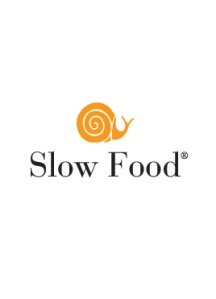Slow Canada 2009
FULL CIRCLE
Students work all along the food production line at Centre Wellington District High School
For more than twelve years, I have pursued a career as a chef with apprenticeships
in Alberta and British Columbia, a Red Seal certification and additional education at the Culinary Institute of America in St. Helena, California. Lately, I came to realize that bringing the mandate of Slow Food into the classroom seemed the most logical thing to do with my highly mobile skill.
In 2006, when I visited Paul Finkelstein’s class in Stratford, Ontario and observed his highly successful program at Northwestern High School, I saw a new career opportunity emerge: this could be an excellent way to combine myriad food related politics and philosophies that have shaped my own cooking experiences while engaging the next generation. (I’ve tailored much of my work on Alice Waters’ work in American schools and on Jamie Oliver’s efforts in the UK – in particular, his BBC series, Jamie’s School Dinners– as well as Michael Pollan’s “Eater’s Manifesto.”)
Today, I run the Food School at Centre Wellington District High School in Fergus, Ontario. It is an alternative approach to the Ministry of Education’s course for Hospitality and Tourism. Although this Ministry-sanctioned program is the foundation of the curriculum that I deliver, I impose a slew of additional focuses that are important in any socially- and environmentally- conscious, food-based curriculum. For example, we are responsive to
what foods are available in our own agricultural community – in other words, what’s available in season, here.
We began this past September with a lengthy course on preserving. Starting with a purchase of local, bulk produce from farmers in the area, the students learned that food acquired at this time of year, when the bounty is high, is less expensive and, if preserved correctly, better tasting by far than anything bought at the grocery store. Bulk freezing of seasonal berries, for instance, has meant that, in the middle of February, we are still able to work with, and sell, high-quality and local fruit-based dishes.
Together, we run both a catering company, Cater Wellington (also the name of our county), and a storefront called The Pantry. The students are able to see their work as being both monetarily and nutritionally valuable. The Pantry has become not only a store where we sell our preserves (jams, jellies, soups, sauces, pickles, compotes), but also a source for dairy products (fresh butter, yogurts, fresh cheeses, ice cream) as well as breads (artisanal baguettes, whole- and sprouted grain breads and bagels) – all made onsite. We also use these products to facilitate our catered events, which, as of February, are counting more than 40 since September, 2008.
Reaction to our work has been positive. The next step is to create a small, French-style bistro in the school. This latest initiative will give students an opportunity to share their work in an a la carte fashion. We are also developing an agricultural program where students can tend to and grow many foods for the Food School. Plans for a greenhouse are well underway and management plans for growing both hydroponic vegetables and for farming fish are also in place.
The Ministry of Education offers agriculture-based courses in a variety of schools in Ontario; we are excited to build a program that will be tied entirely to the work we are doing in the Food School kitchen. That means a connection to our surroundings. Centre Wellington DHS is bordered by farmland. We need to engage this land for the future of this curriculum and for our own future. We hope these strategies will allow us to grow food year-round and to enable us to learn about growing organic foods in our own particular climate.
I am hoping that this work and more agriculture programs to promote sustainable and organic farming practices will also inspire a new group of young farmers in an era when the average age of a Canadian farmer is 60 and when these producers count for a mere 2% of Canada’s population. Still, there is little drive within society to reconnect with farming as an exciting profession for youth. There is work to be done.
